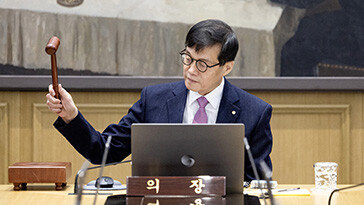Africa desperately needs Western help in the form of schools, clinics and sweatshops *.
Oops, don't spill your coffee. We in the West mostly despise sweatshops as exploiters of the poor, while the poor themselves tend to see sweatshops as opportunities.
On a street here in the capital of Namibia, in the southwestern corner of Africa, I spoke to a group of young men who were trying to get hired as day laborers on construction sites.
“I come here every day,” said Naftal Shaanika, a 20-year-old. “I actually find work only about once a week.”
Mr. Shaanika and the other young men noted that the construction jobs were dangerous and arduous *, and that they would vastly prefer steady jobs in, yes, sweatshops. Sure, sweatshop work is tedious, grueling * and sometimes dangerous. But over all, sewing clothes is considerably less dangerous or arduous - or sweaty - than most alternatives in poor countries.
Well-meaning * American university students regularly campaign against sweatshops. But instead, anyone who cares about fighting poverty should campaign in favor of sweatshops, demanding that companies set up factories in Africa. If Africa could establish a clothing export industry, that would fight poverty far more effectively than any foreign aid program.
Namibia was supposed to be a pioneer in Africa's garment industry, for it is stable, pleasant and safe, and its government has tried hard to entice foreign investors. On the edge of Windhoek are a series of low * factories set up to produce garments for the American marketplace.
The biggest is the Ramatex Textile Factory, a Malaysian investment that employs 6,000 people. But the owners say they are losing money and will pull out *, and other factories have stopped operating as well.
In Windhoek's Chinatown, I met Sun Zhimei, a Chinese woman who operates a small factory employing Namibians. “I'd like to help this country, by boosting * its garment industry,” she said. But on the day I visited, her factory was deserted *. “It's cheaper to import goods all the way * from China than to make them here,” she complained.
The problem is that it's still costly * to manufacture in Africa. The headaches across much * of the continent include red tape *, corruption, political instability, unreliable electricity and ports, and an inexperienced labor force that leads to low productivity and quality. The anti-sweatshop movement isn't a prime obstacle, but it's one more reason not to manufacture in Africa.
Imagine that a Nike vice president proposed manufacturing cheap T-shirts in Ethiopia: “Look, boss, it would be tough to operate there, but a factory would be a godsend * to one of the poorest countries in the world. And if we kept a tight eye on costs and paid 25 cents an hour, we might be able to make a go of it *.”
The boss would reply: “You're crazy! We'd be boycotted on every campus in the country.”
So companies like Nike, itself once a target of sweatshop critics, tend not to have highly labor-intensive factories in the very poorest countries, but rather more capital-intensive factories (in which machines do more of the work) in better-off * nations like Malaysia or Indonesia. And the real losers are the world's poorest people.
Some of those who campaign against sweatshops respond to my arguments by noting that they aren't against factories in Africa, but only demand a “l(fā)iving wage” * in them. After all, if labor costs amount to only $1 per shirt, then doubling wages would barely make a difference in the final cost.
One problem―as the closure of the Namibian factories suggests―is that it already isn't profitable to pay respectable salaries, and so any pressure to raise them becomes one more reason to avoid Africa altogether. Moreover, when Western companies do pay above-market wages, in places like Cambodia, local managers extort * huge bribes in exchange for jobs. So the workers themselves don't get the benefit.
One of the best U.S. initiatives in Africa has been the African Growth and Opportunity Act, which allows duty―free imports from Africa―and thus has stimulated manufacturing there. But last year, partly because of competition from China, textile and clothing imports under the initiative fell by 12 percent.
The Congo Republic's president, Denis Sassou-Nguesso, told me that he would love to have more factories. It's incredibly frustrating, he noted, to see African countries export cotton, timber and other raw materials but rarely have the chance to process them. The American initiative “is a step in the right direction,” he said. “But it needs more of a push.”
One push needs to come from African countries themselves: a crackdown on corruption and red tape. But another useful step would be for American students to stop trying to ban sweatshops, and instead campaign to bring them to the most desperately poor countries.
-June 6, 2006 / By Nicholas D. Kristof
■??
1)? ?? ?????? ????? ?? ?????? ?? ??? ???? ? ????.
2)???? ???? ?? ??. ????????? ?????? ??? 1990? ?????. ??? ???, ??? ????????, ??? ????, ???? ???? ???, ??? ???? ???. ?? 192? ?(2003).
■??
*malign=To make evil, harmful, and often untrue statements about; speak evil of.
*sweatshop=A shop or factory in which employees work long hours at low wages under poor conditions.
*arduous=Demanding great effort or labor; difficult.
*grueling=Physically or mentally demanding to the point of exhaustion.
*Well-meaning=Well-intentioned.
*low=Humble in status or character; lowly.
*pull out=To withdraw, as from a situation or commitment.
*boost=To assist in further development or progress.
*desert=To leave empty or alone; abandon.
*all the way=From beginning to end; completely. ??) drove all the way from Detroit to Pittsburgh.
*costly=Of high price or value; expensive.
*much=A large quantity or amount. ??) Much has been written.
*red tape=The collection or sequence of forms and procedures required to gain bureaucratic approval for something, especially when oppressively complex and time-consuming.
*godsend=Something wanted or needed that comes or happens unexpectedly.
*make a go of it=????.
*better-off=Being in a better or more prosperous condition. ??) a visit to her better-off relatives.
*living wage=A wage sufficient to provide minimally satisfactory living conditions. Also called minimum wage.
*respectable=Considerable in amount, number, or size. ??) a respectable sum of money.
*extort=To obtain from another by coercion or intimidation.
■???-????? ???
??? ?? ???? ?? Katharine Weber? ‘The factories of lost children(???? ???? ??)’?? ???? ??? ????. ??? ? ???? ?????? ??? ????(???? ??)?? ??? ????? ????? ????? ??? ???? ??? ??? ?? ??? ??????. ??? ????? ?????? ??? ?? ?? ???? ?? ?? ??? ???? ??? ??????.
???? ?????? ? ???? ??? ??? ?? ?????? ??? ??? ???? ??? ??? ????? ??? ???? ????. ??? ??? ??? ????? ???? ??? ???? ?? ???? ? ??? ?? ???? ???. ??? ?? ???? ???? ????? ???.
?? ?? ?? ?????? ????? ? ???? ???? ? ?? ????. ????? ??? ??? ?? ? ??? ??? ?? ????? ???? ???.
?????? ?? 1960??? ?? ???? ??? ??? ?? ??? ?????. ????? ??? ???????. ?? 10? ??? ????? ??? ??? ??? ??? ? ????. ???? ???? ? ??? ??? ??? ??.
???? ?? ?? ??? ?????. ????? ???? Katharine Weber? ?? ? ??? ??? ??? ??? ????.
????? >
-

????
??
-

??? ??
??
-

??? ???
??
-
- ???
- 0?
-
- ???
- 0?
-
- ???
- 0?
![[?????? ??? ???]The Culture Of Nations](https://image.donga.com/donga_v1/images/img_default.png)



?? 0